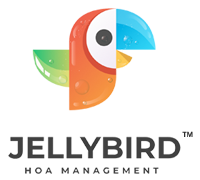In today’s age, most business is conducted online in the virtual world. The reason for that is simple—it’s quick and convenient! Taking your HOA online through the use of a community website will give you access to all of the benefits that the online world has to offer.
In this article, we’ll review the reasons you should create a website for your community and how to manage it to ensure engagement from your homeowners.
Benefits of an HOA Website
Ease of Access: A community website makes snail mail and hand-distributed flyers a thing of the past. Homeowners will have 24-hour access to all HOA news, community documents, covenants and by-laws, board meeting minutes, and calendar events. This will save the board time and money when it comes to distributing announcements and updates to homeowners.
Simplified Payments: Provide an easy, user-friendly way to request and collect payments and assessments. Residents love a one-stop, hassle-free place to view balances, make payments, and receive other financial information.
Offset Costs: Not only does a website help you manage your community, but it helps save the community money as well. Rather than pay for postage and paper for each announcement, you simply need to update the website. A quick email blast or post can alert homeowners to important updates or critical information in an instant.
Sense of Community: A website provides the perfect balance between privacy and communication for community members and board members. This fosters a comfortable, natural sense of community. By putting all the information community members need at their fingertips, they will find it easier to manage their account and will never feel out of the loop on what is happening in their neighborhood.
Legal Compliance: In some states, it’s even required to have a community website for homeowners to access. For example, in Texas, associations with over 60 lots or who have a management company must have a community website with certain requirements.
Risks
While community websites come with many benefits, there are also some risks that should be taken into consideration when creating your website
- Cyber Crime: To ensure that both homeowners and the association’s financial information stays protected, it’s best to follow safe practices to avoid any potential cyber theft. Use password protection to ensure that financial information cannot be compromised.
- Liability: A community website is a great place to store documents, but if certain documents are made available for all to see, it could create liability issues for the association. When housing secure documents that may contain private homeowner information, such as meeting minutes, be sure to restrict access to who can view those documents. Implementing varying access levels within the website can help protect the association from any potential liability.
Ensure the Success of Your Website
Spread Awareness: The first step to ensuring the success of your website is to make sure your homeowners can easily find it. List your site on all social media platforms that your community utilizes. You can also incorporate the web address in any email or snail mail communications that are sent to the homeowner.
Refresh: When Independence Day rolls around, homeowners will likely turn to the community’s website to see if any special events are planned. If all they see are old posts from the New Year’s celebration earlier in the year, then they will likely assume that the page isn’t updated enough to bother checking. Keep your website updated with topics that are both fresh and current to help keep homeowner engagement consistent.
Keep It Clean: Simple, clean layouts are not only easier on the eye, but will help homeowners quickly find what they are looking for.
As you can see, there are multiple benefits to using an HOA website. With precautions in place, those benefits foster a sense of community, provide easy access for homeowners, and allow the board to communicate effectively in a timely and cost-effective manner.

